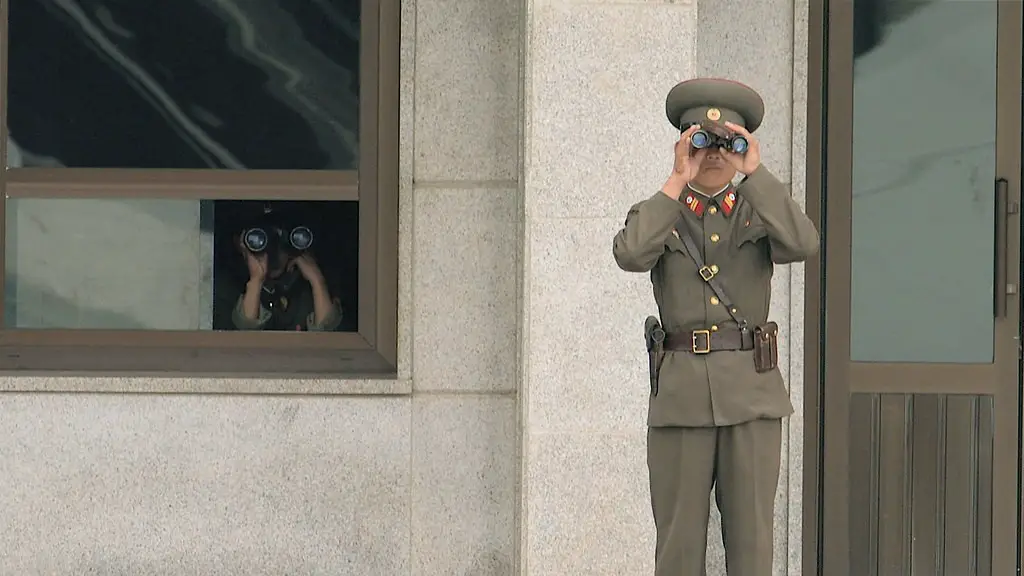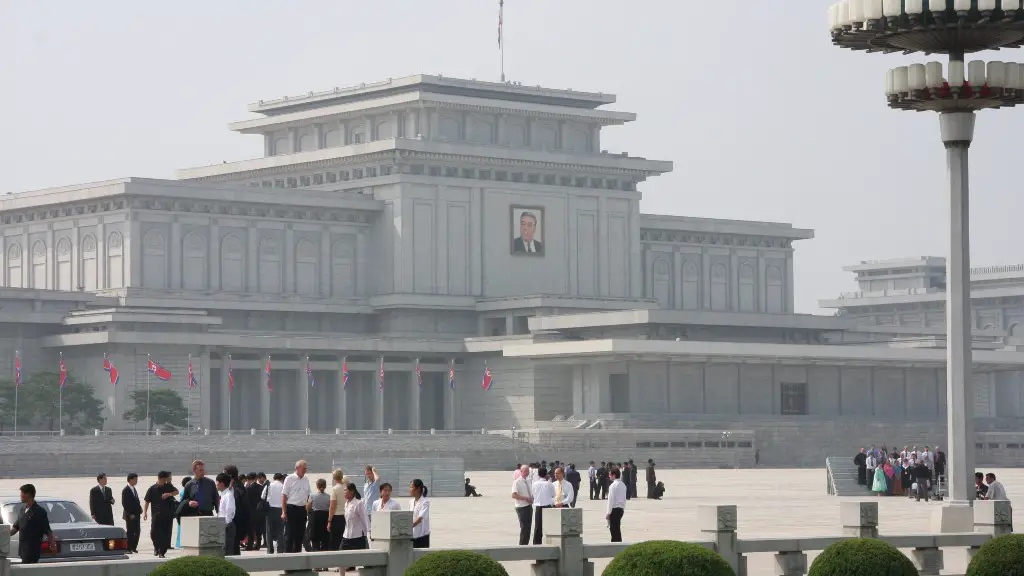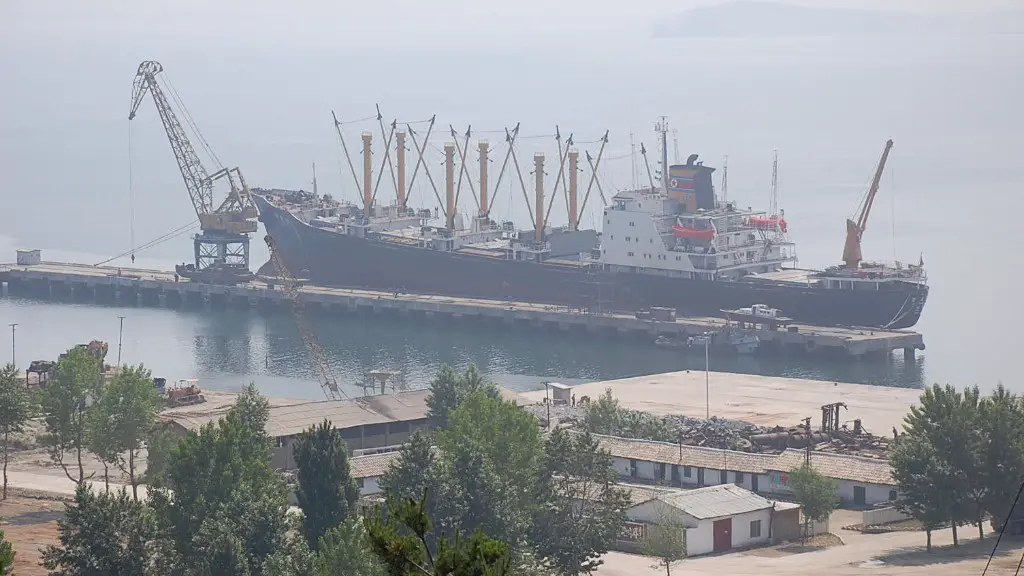The world has been watching warily as tensions between China and North Korea heat up. With China’s recent decision to dramatically scale back economic ties with the hermit kingdom, many are wondering: Is China fed up with North Korea?
In recent years, China has grown increasingly annoyed by its unpredictable neighbor’s belligerence. North Korea has engaged in nuclear weapons tests and ramped up rhetoric threatening the United States and its allies—actions that have been widely condemned by the international community.
China has also been exasperated by North Korea’s disregard for economic sanctions, and its reluctance to implement economic reforms or to take meaningful steps towards denuclearization. As North Korea’s closest ally, it is China that often bears the brunt of the international anger.
Though China has long endured North Korea’s antics, in recent months the country has finally taken a sizeable stand. In February 2017, China announced that it had stopped importing coal from North Korea, citing United Nations sanctions. This move represents a major blow to the North Korean economy, and has been seen as a sign that China is slowly turning its back on the regime.
China’s tougher stance on North Korea has also been reflected in its diplomatic history, as the country has condemned numerous missile tests conducted by Kim Jong Un’s administration. In response to North Korea’s nuclear ambitions, China has also proposed a “double suspension” plan that would freeze both North Korean nuclear and missile development, and the THAAD anti-ballistic missile system being deployed in South Korea.
Despite its evolving relationship with North Korea, however, China still maintains that any solution must be both non-violent and non-confrontational. According to Chinese foreign minister Wang Yi, “Facts have proven that pressure and sanctions can never fundamentally resolve this issue, and we believe that dialogue and negotiation is the only effective avenue to achieving a lasting peace and stability in the Korean Peninsula.”
It is clear that China’s relationship with North Korea has been strained in recent years, and while it appears that China is increasingly fed up with the hermit kingdom, it is still clear that the country wants to see a peaceful resolution to the ongoing tensions.
Military Implications of China’s Stance
It is clear that China’s ability to influence North Korea’s behavior is waning, and its stern diplomatic stance is a reflection of that fact. But at the same time, China does have some military clout in the region, and this should not be ignored. China is North Korea’s biggest trading partner, and its closest ally, and as such any military action it takes could have major repercussions on the hermit kingdom.
China’s willingness to condemn North Korea’s missile tests and to scale back economic ties could be an indication that the Chinese leadership is no longer prepared to overlook the country’s erratic behavior. And, although the Chinese government has repeatedly stated that it wants a peaceful resolution to the current tensions, its decision to take a firmer stance on North Korea suggests that its patience might be wearing thin.
If China’s military muscle is used against North Korea, it is possible that the hermit kingdom could be forced to the negotiating table. And, if North Korea does make diplomatic concessions, it could signal a significant shift in the balance of power in the region.
International Cooperation
The growing tensions between North Korea and its neighbors has prompted international calls for China to take a greater role in reigning in the hermit kingdom. The United States, in particular, has urged China to take a firm stance on North Korea and to use its economic leverage to pressure the regime into compliance with international law.
Moreover, the United Nations Security Council has unanimously passed a resolution condemning North Korea’s missile launches, and has called for increased international cooperation to address the issues. And, the UNSC has strongly urged China to take the lead in helping to ensure that North Korea is held accountable for its violations of international law.
China has also been criticized for not doing enough to pressure North Korea into adhering to UN resolutions. However, it is worth noting that China has made some concessions and has at least paid lip service to the idea of multilateral cooperation. As such, it will be interesting to see whether China is able to use its influence to help foster real change in the region.
China’s Economic Impact
The growing rift between China and North Korea could also have serious implications for the economies of both countries. China is the largest trading partner for North Korea, accounting for over 80% of the country’s foreign trade. And, though China has not yet cut off all trade with North Korea, it is clear that the country’s economy is feeling the brunt of the increasing tensions.
Similarly, China could also suffer from any further deterioration in its relationship with North Korea. North Korean workers account for a large portion of the unskilled labor force in China and it is estimated that over 30,000 North Koreans are currently employed in the country. If China were to cease trade and employment with North Korea, it could have a serious ripple effect on China’s economy.
With that said, it is clear that China still has much to gain from its relationship with North Korea, and its recent economic sanctions are likely motivated more by the need to abide by UN resolutions than to truly punish the hermit kingdom.
Conclusion
While the recent tensions between China and North Korea may seem worrying, it is clear that China still wants a diplomatic solution. The country’s ability to influence North Korea is waning, and it is increasingly likely that any further military confrontation will be international in scope. Nevertheless, it is clear that China still retains considerable economic clout, and this could be key to any future diplomatic efforts.
Regional Impact
Ultimately, the growing rift between China and North Korea could have far reaching implications for the rest of the region. China is North Korea’s closest ally, and any further deterioration in the relationship between the two countries could have major ramifications for the rest of the Far East.
It is also clear that any future diplomatic efforts must involve all the countries in the region. China, in particular, will be key to finding any lasting solutions and must take a more proactive role in helping to bring North Korea closer to compliance with international law.
Domestic Implications
It is worth noting that any increased tensions between China and North Korea could have serious domestic implications for both countries. North Korea is highly reliant on foreign aid, and any further economic sanctions could be devastating to its already crippled economy. Similarly, any military action taken by China could have serious repercussions for its citizens, who would likely be caught in the crossfire.
At the same time, however, it is clear that any diplomatic solution must involve the people of North Korea. Without the support of its citizens, any diplomatic efforts are doomed to fail, and any economic sanctions or military action is unlikely to have a lasting impact.
International Reactions
It is also important to consider the implications of the current situation for the rest of the world. As tensions between China and North Korea increase, so too does the potential for conflict in the region. The United States and other countries in the region have already voiced their concerns, and it is likely that an escalation in the region will prompt an international response. Moreover, it is possible that international powers may begin to impose further economic sanctions, which could have serious repercussions for China.
The current situation is therefore a cause of major concern for the international community. With the stakes continually rising and tensions at an all-time high, it is essential that the international community finds a way to bring the situation under control before it spirals out of control.





